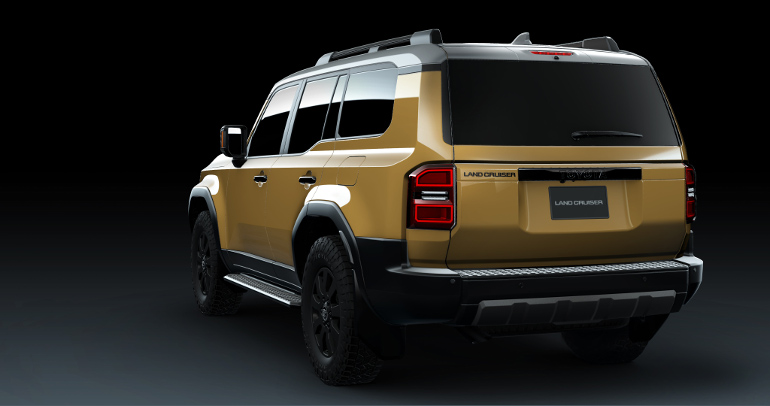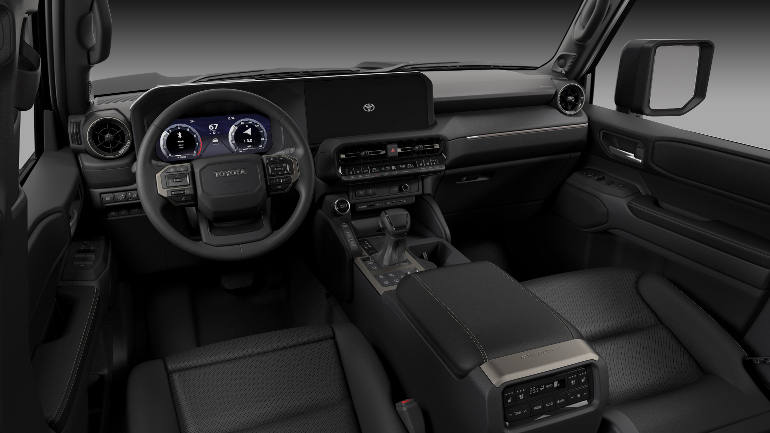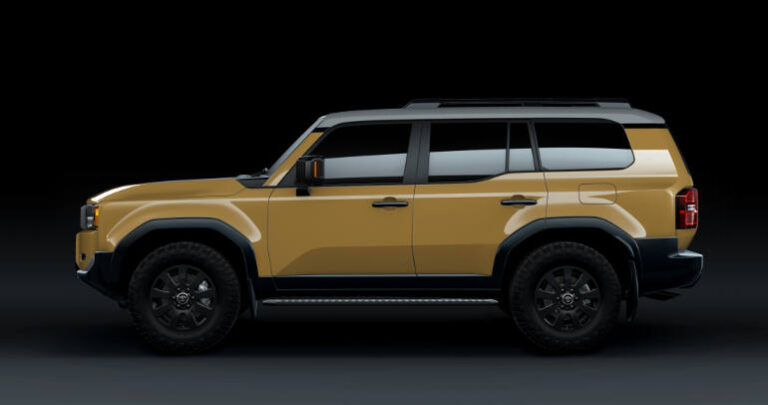The all-new Toyota LandCruiser Prado family SUV has made its world premiere, bringing with it significant mechanical upgrades, enhanced performance, and rugged styling changes ahead of its arrival in Australian showrooms mid next year.
Since its arrival in 1996, the Prado has been one of Australia’s most popular large SUVs thanks to its blend of capability, amenity and passenger-oriented comfort, and the all-new model continues that brief with go-anywhere performance and a design that symbolises the essence of the LandCruiser.
Toyota Australia Vice President Sales, Marketing and Franchise Operations Sean Hanley said the new Prado provides all the hallmarks of a LandCruiser that customers love.
“Australian customers appreciate the vast capability of the LandCruiser Prado, from use as a family vehicle, to off-roading, towing and long-distance touring, which is evidenced by its huge popularity,” Mr Hanley said.
“The all-new Prado takes everything that customers love about the Prado to a new level, with even greater performance, capability and technology, as well as bold new styling inside and out.”
The new-generation Prado adopts a new design direction that fuses traditional and contemporary styling cues, employing horizontal lines inspired by LandCruisers of yesteryear to deliver on the theme of functional beauty.
The front end is based around a rectangular grille and tri-beam headlights, with a low-set front cowl to improve forward visibility.

Muscular wheelarches and strong horizontal lines provide a sense of strength, with a low beltline that further improves visibility for occupants.
At the rear, the Prado features a vertically oriented tailgate and simple tail-light signature to complement the front end, with silver lower bumpers at both the front and rear of the vehicle.

Measuring 4,920mm long, 1,988mm wide and 1,860mm tall, the all-new Prado is 95mm longer and wider, and 10mm taller than before. Its 2,850mm wheelbase is 60mm longer than before, and now matches the length of the LandCruiser 300 Series.1
The Prado now shares its underpinnings with the 300 Series, riding on the rugged and sophisticated TNGA-F ladder-frame chassis which is 50 per cent more rigid than the current-generation Prado, helping to increase overall vehicle rigidity by 30 per cent.
The modern and stiff platform allows for improved suspension performance with greater wheel articulation for off-roading and excellent handling and ride comfort on-road.
Wheel articulation is improved further with Toyota’s brand-new stabiliser-bar control system which allows the front stabiliser bar to be disconnected for excellent wheel articulation, while enhanced functionality for the multi-terrain select and multi-terrain monitor systems help the Prado go even further off-road.
The adoption of electric power steering provides a crisper steering feel and enhanced low-speed manoeuvrability on-road, maximises control when off-roading, and allows compatibility with active safety systems such as lane trace assist.
In Australia, the all-new Prado will be offered with the 1GD-FTV 2.8-litre turbo-diesel four-cylinder engine enhanced with 48-volt technology to help improve fuel consumption in urban settings.
Producing 150kW of power and 500Nm of torque, the 1GD engine drives all four wheels via a new Direct Shift-8AT eight-speed automatic transmission which replaces the existing six-speed unit.
Inside, the Prado employs a clean, stylish and functional interior design with dual digital screens for the instrument cluster and multimedia system, and an intuitive layout for the switches that group basic functions together.

The Prado will be available with either five- or seven-seat layouts depending on variant and will be offered with a full suite of Toyota Safety Sense active safety technologies2.
Further details on the all-new LandCruiser Prado including local specification will be made available closer to the vehicle’s Australian launch in 2024.
1 Vehicle specifications and features are based on overseas model. Australian specifications and features may differ
2 Driver assist feature. Only operates under certain conditions. Check your Owner’s Manual for explanation of limitations.






